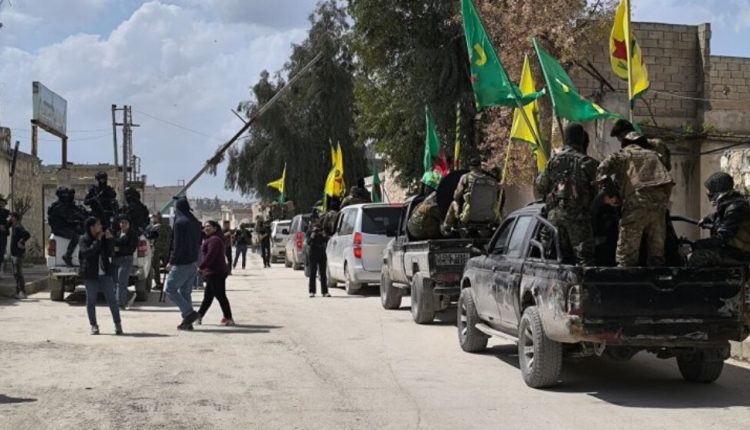Security Responsibility in the hands of the people of Aleppo
On April 1, the Council of Sheikh Maqsoud (Şêxmeqsûd) and Ashrafiyah (Eşrefiyê) Neighborhoods and the Damascus Administration signed a 14-point agreement, including the promotion of coexistence, protection of residents, prevention of armed actions and regulation of internal security. The agreement aims, among other things, to improve civilian life and facilitate freedom of movement within the city.
The implementation of the fifth point, the demilitarization of public space, has now begun. Old road barricades have been removed to this end. Transportation routes in Sheikh Maqsoud and Ashrafiyah, which had been closed for about 4 months due to security reasons, were reopened, beginning with the opening of the main road near the large intersection in the west of Ashrafiyah.
The new agreement is seen as a further step in the deepening dialogue between the Democratic Autonomous Administration of North and East Syria (DAANES) and the Syrian central government. Observers see the development as a sign of a growing willingness to cooperate at the local level.
Joint checkpoints set up in Kurdish neighborhoods of Aleppo
As part of the agreement the checkpoints surrounding the neighborhoods have been transformed into security points to be jointly managed by the Internal Security Forces and the “General Security Authority” affiliated to the Damascus government. There are seven main security points around both neighborhoods, namely Cezîre, Ewarid, Cendol Junction, Lêremon, Şîhan Junction, Park Point and Telet Eşrefiyê.
Security in Sheikh Maqsoud and Ashrafiyah handed over to Internal Security Forces

Article 6 of the agreement envisaged the withdrawal of military forces from both neighborhoods to the eastern side of the Euphrates, taking their weapons with them.
The military forces in both neighborhoods moved to the east of the Euphrates. The General Command of People’s Defense Units (YPG) issued a statement on the transfer of security responsibilities in Sheikh Maqsoud and Ashrafiyah, in Aleppo.
The statement said: “Since the recent phase of the conflict in Syria, the people of Sheikh Maqsoud and Ashrafiyah in Aleppo have established a self-reliant and organized system of defense in response to persistent threats. From the earliest days, the YPG and YPJ have actively supported and reinforced this line of resistance.”
The statement added that “throughout this period, our forces have borne significant sacrifices. However, the strategic gains achieved have played a decisive role in ensuring the security and stability of the civilian population. Recent developments have once again affirmed the effectiveness and resilience of this collective effort. Our units have carried out their responsibilities with discipline and a clear sense of duty.”
The statement underlined that “in accordance with the latest agreement concluded between the Autonomous Administration of Northern and Eastern Syria and the Syrian Transitional Government, the responsibility for maintaining security in Sheikh Maqsoud and Ashrafiyah has been formally transferred to the Internal Security Forces operating under the authority of the Autonomous Administration. A partial withdrawal of our forces has already been completed; the remaining units will be redeployed in a phased and orderly manner over the coming days.”
The statement confirmed that the “YPG and YPJ remain committed to the principles of self-governance and the organized will of the people. We will continue to adapt our posture in line with the strategic requirements of the new phase.”
Internal Security Forces took responsibility for security after the military forces left. Arîn Ebdo, an executive member of Sheikh Maqsoud and Ashrafiyah Internal Security Forces, told Hawar News Agency (ANHA) that the security in the neighborhoods was taken over as planned, noting that the Internal Security Forces have 10 years of experience in providing security. Arîn Ebdo added that they will take every measure to ensure the security of the people.

